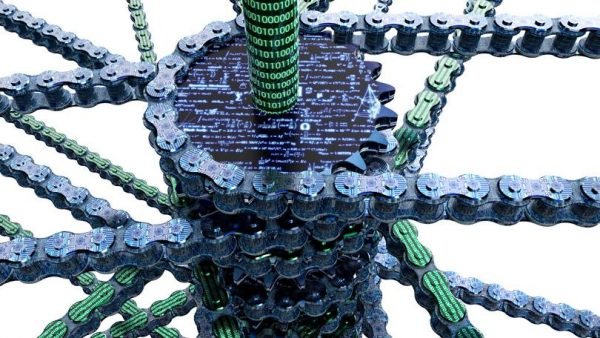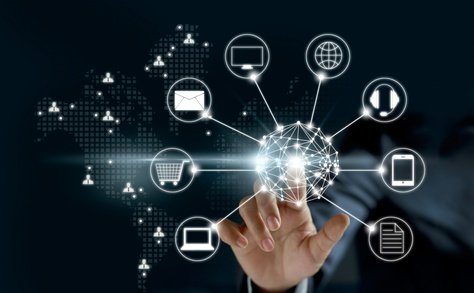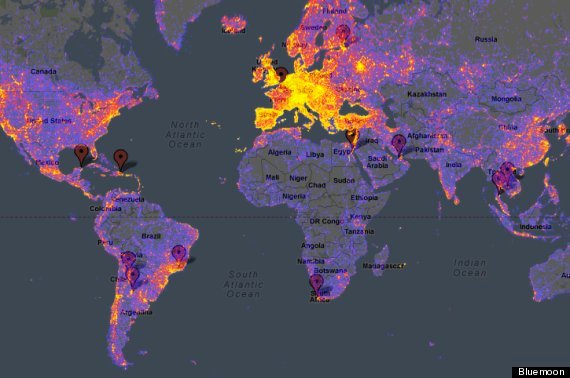
Source
I have spoken about 'The Present of Democracy'. It is now time to speak of its future.
Let Us Work Toward a Democracy More True
This is what I personally envision could be the future of democracy as we could know it. I shall roll a lot of concepts into this post and so it shall be likely that not all shall appeal to you.
A Blockchain-Powered Democracy
It sounds cheesy to begin with blockchains, but it is my view that this technology shall be key to bringing about a democracy more true than has ever before been seen.
More-so, the type of democracy that a blockchain could support would be unlike and beyond any kind before witnessed.
As I go through the subsequent points, always bear in mind the role that blockchain technology could have in bringing such about.

Source
A Politics of Improved Transparency and Security
We live in a World where people are genuinely afraid to fly their colours. We do so because we feel that we might be singled out. Ironically quite a lot of peoples' opinions can be subdued in this fashion, never aware of the existence of each other.
While it would be ideal to be able to say that such fears would be completely unfounded in a future, such would be a little unrealistic on my part.
What I expect to instead occur is to permit individuals to vote either transparently or anonymously, as well as not at all.
This is made possible through the implementation of side-chains specific to the service of separating an individual's identity layer from their democratic choices made (and much more - but lets keep things simple).
One's political identity cannot exist without one's common identity and any attempt to inject unsupported vote identities would be picked up quickly enough without jeopardizing one's common identity.

Source
A Politics of Democracy 'and' Meritocracy
We are fast approaching a time where the concept of one's life and experiences being stored upon a disc (in the spirit of the "Tron" movies) shall no longer be the stuff of science fiction but a reality. The main difference would be that any physical representation of such data would primarily serve as a backup or 'cold storage' - as a lot of our data would be encoded into the blockchain.
As a result it may already be feasible to assess one's status or even one's deeds and works and surmise that one's vote upon certain matters should carry a certain wait beyond that of an individual with little-to-no-such history.
How such might take shape is a topic unto itself - but with fast and easy access to information we could far more effectively pull this off than we could just 50 years ago. Every individual still has a vote - but one's vote can be cultivated throughout life to change in weight.
To return to the concept of transparency and security, It would be desirable for a vote to tumble the anonymous votes and their weights together such that only an average is presented, further obscuring from prying eyes those who might want answers.

Source
A Politics Where Elections Are Persistent
One step toward mitigating this issue with the present political system is to do away with elections every four-to-five years. Instead, votes are associated on an on-going basis and can be attributed or withdrawn at a whim.
A Politics Of Issues and Policies, Not Parties or Politicians
A long time ago I indirectly spoke of this. When politicians or parties occupy the center - little good comes to a given populace - and that populace is at the mercy of the whims of whomsoever should be ordained to stand in the center - in office.
For a fair time I wrested over this question with myself. Should politicians not still exist? Should they not be compensated for their service?
Following much to-and-fro over the matter I settled upon a solution of decentralized politics.
Yes there would still be politicians (and I shall speak on this soon enough) and yes there would be a means of compensation - but both means would be decentralized in nature. What would instead be central would be the issues at hand as well as the slots of policy to be decided upon.
As an aside, yes, this would set up a nation's policies to be akin to that nation's programming with behavior agreed upon to the smallest detail, and all sanctioned and supported by the peoples' votes.

Source
A Politics Where Majorities and Minorities are Both Respected
And yes - all would be sanctioned even where differences of opinion exist on how to proceed on any given matter.
Rather than engaging in a 'tyranny by majority', the democracy of the future will be better suited to establish and recognize the rights of minorities, as well as a multiplicity in view.
The mantra here is that 'there is a time and a place and a means for everything' - and this is how such disagreements shall be resolved. This will mean that pockets will arise within society where behavior that would otherwise not normally be considered acceptable is tolerated or even encouraged.
Unlike within current political systems where such minorities are partitioned into districts and other cleverly divisive compartments, minorities under this system would be represented and would not be stifled. Where necessary the anonymous vote will help to protect voters identities and will itself be a gateway for subsequent votes as to where, when and how such a minority view is accepted.
At this stage there may be a back-and-forth over this latter question - but at some point a decision on the matter will need to be made.

Source
A Political Arena Easier Accessible
Unlike the present day where independents presenting themselves for politics is a rarity, in the future it would be very easy for a small cluster of individuals to take on a political incorporation.
Such an incorporation represents the formalization of a team, and the health of the team shall be important for a lead politician gaining the level of credibility to influence public affairs.
That being said, due to the decentralization of politics, political entities shall be able to choose to address not a ruler but the entire population. At any point an incorporated politician may address the people about any issue or any policy slot.
The reaction gained, quite similarly to Steemit, constitutes the reward for the politician's contribution.

Source
A Politics of Service and Not Exploitation
When personal profit is allowed to become a primary motivating factor in getting into politics, it is only a matter of time before the whiff of more money will get a politician to serve the highest bidder - and that is unlikely to be the constituency that s/he is supposedly serving.
This serves as following for the previous point.
An Infrastructure of Transparency and Accountability
Just as the politics can be consigned to blockchain, so too can records of public spending and works be so.
Not only does this enable a fast and accurate picture of how resources are invested into the various aspects of the infrastructure - it could also be a precise driving force towards such.
No longer would funds go into a proverbial black hole where nobody knows what got spent upon what. In this future it becomes possible to ensure that wealth does 'not' get transferred to some centralized point without good reason as well as public approval.

Source
The above is a broad-brush speculation over a new direction via which democracy may be fixed. As such I hope to see plenty of discussion, including that of disagreement. :c) How might you see things working out?
If you have any comments that you would like to share then I will join you down in the comments section below.
Sincerely,

Previous Post: Global Game Jam 2018 Experience - Part I - Digital Fail
Now my friend - first of all, I hope you are well! You've chewed out a very strong post here with a lot to consider in it :)
I agree with you easily that blockchain and politics will be working hand-in-hand. Politics and finance are wrapped up with eachother, so the same is going to happen with blockchain in the future. it is a given. Whether it is for the positive or negative is to be seen. Maybe there will be some of both.
I am still pondering what you have said about individual identities and votes being recorded in blockchain. The IDs are being recorded now (like it or not) and the voting system - again we'll see. Won't take too long. But I don't think it (elections) will be continuous. Politicians love an event!!
I do like the idea of blockchain increasing accountability and transparency. That is a definite positive for the future. No laundering the money books in this case :) About time too!! That is what I am looking forward to.
I'm going to read over this again and see what I missed. Block chain will be a positive for politics and democracy in the future. It will also take effort from us.
I have to put my son to bed - so that's enough from me. Stay well and happy :)
Thank you for your lovely comment and vote @mysecondself01. ^_^
Yes, there is quite a lot to consider above - both within the context of itself as well as other elements made in the same post. It took a lot longer to write this than I had expected - but the result is overall worth the while.
In truth it was at the 11th hour that I looked at what I was writing and said to myself: "Nah - I don't think its necessary for professional State-employed politicians to exist within this future system. The politicians of the future shall be delitants as well as corporate voices lobbying on behalf of their beneficiaries."
At the same time I also wish for this future system to be easy for individuals to access and contribute to the public consciousness - even if such needs to be in an entirely new manner. I am far from done describing the future of democracy - and I will revisit it with an aim of describing it in practice.
Any situation where corruption becomes much harder to pull off is a plus in my books - and it is one element that I really wanted to be included within the new system. :c)
Thank you again. Sorry it took me so long to reply! ^_^
Sometimes I hate it that my English is not sufficient enough to really give the full reply is WANT to give, but let me still give it a try. (This also means that some pieces of your post are a bit too vague for me, so correct me where I am wrong)
To me it is good to have politics and politicians. To me 'the simple man' will not be capable of making the big decisions that make a country run. I find you see it when a country has referendums. So the country calls out the people to vote about a specific topic. People discuss about this topic with their friends/at home/ at work but often NOT seek for proper background information. Their now obtained biased info will spread to the next neighbor/work/friends and so in the end everybody end up shouting the same things.
Politicians as they SHOULD function, is that it is their sole function to gather as much information about a topic before they make a decision about it. The 'simple man' will not do this.
We are talking about an ideal world of course. Politics and blockchain I cant really get my head wrapped around this how this would fully work out :)